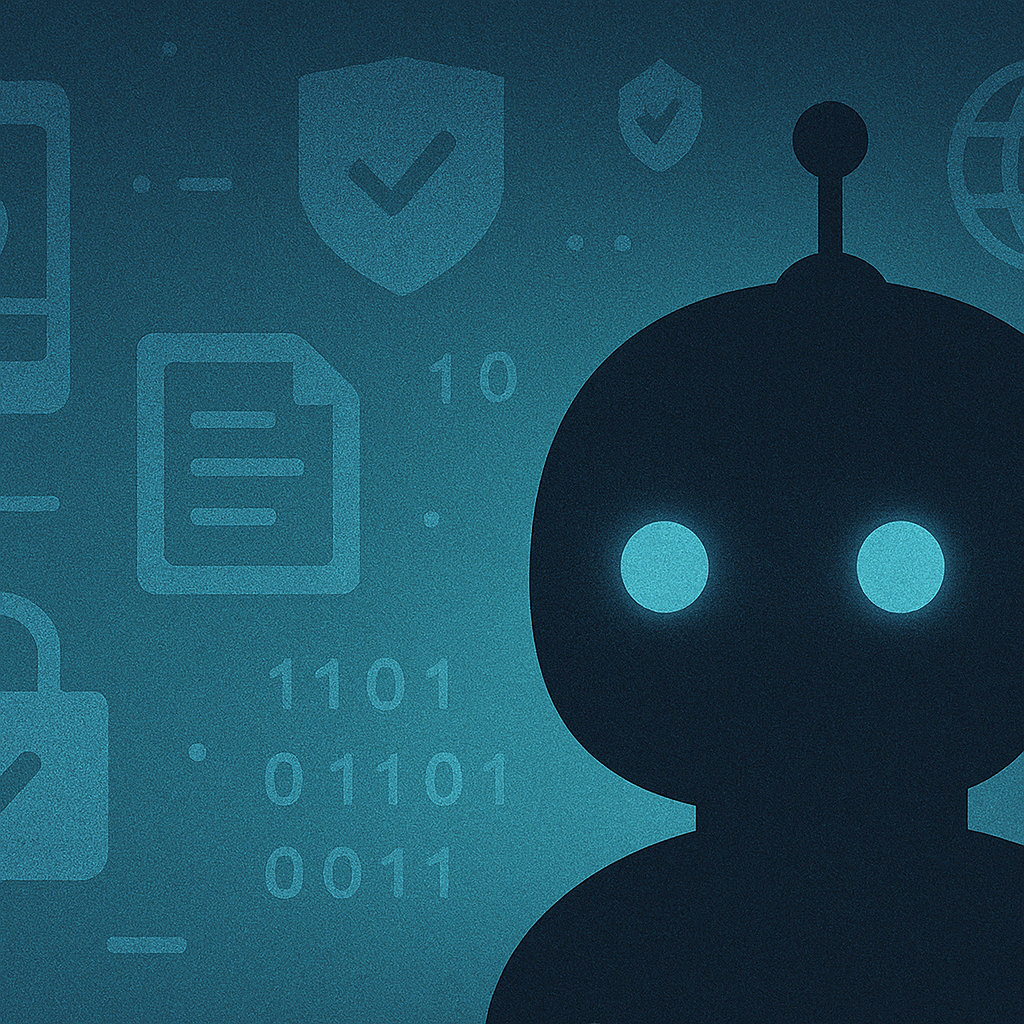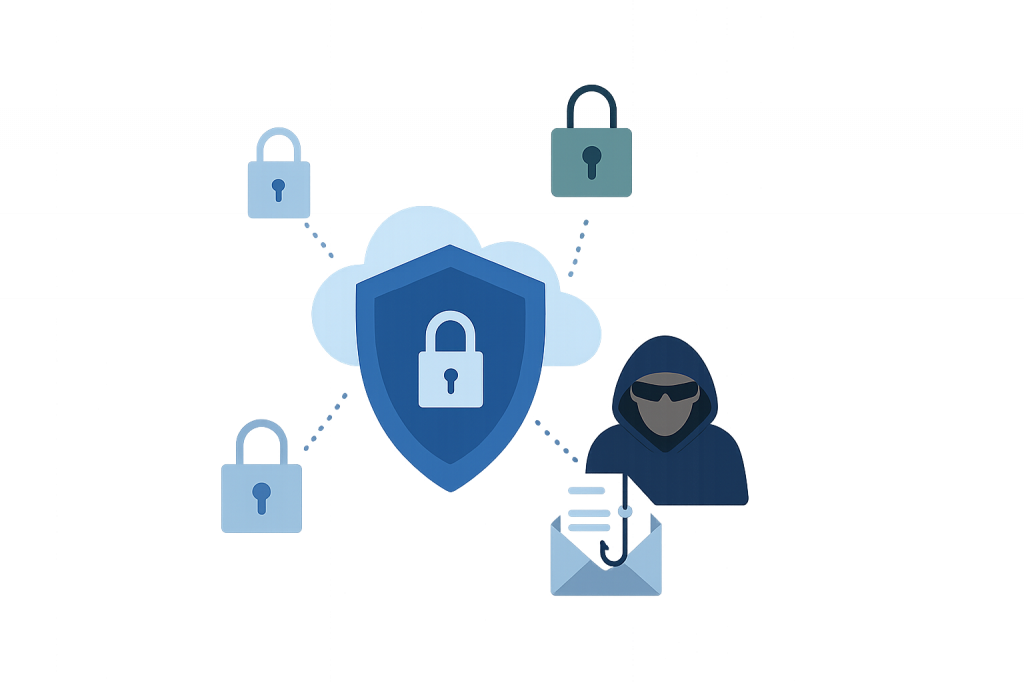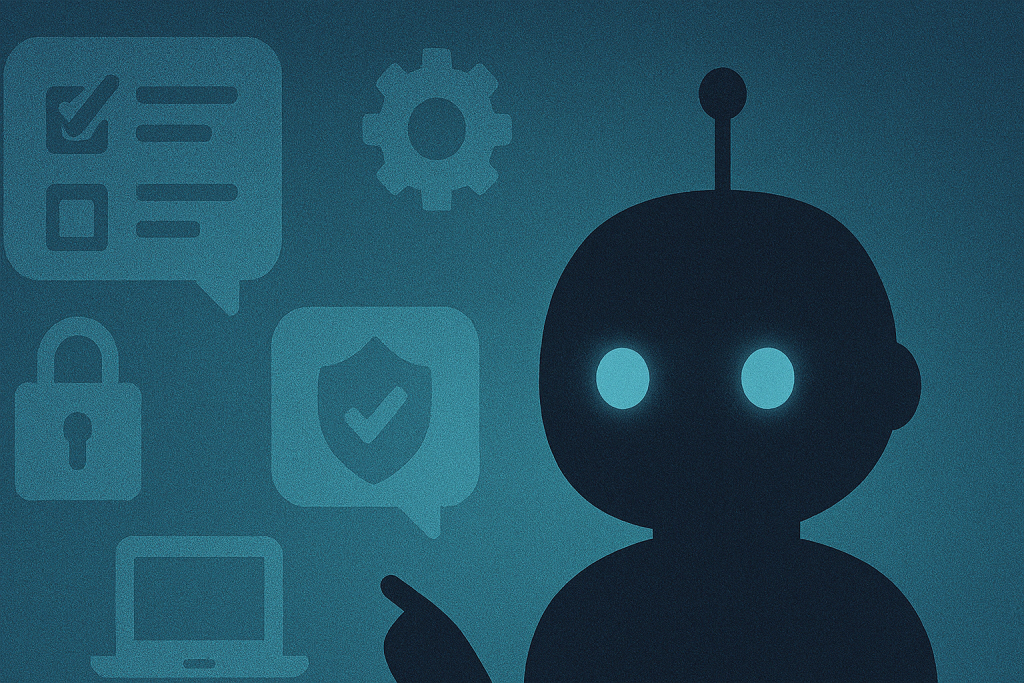Chatbot data privacy is becoming one of the most talked-about issues in tech today. AI-powered chatbots have become indispensable assistants in our daily routines. From drafting emails to brainstorming new ideas, tools like ChatGPT, Google Gemini, Microsoft Copilot, and DeepSeek offer quick, intelligent responses that streamline tasks across various industries. But as these conversational systems become more integrated into our personal and professional lives, a pressing question emerges: Who’s really listening to your conversations?
In this post, we will explore the concept of chatbot data privacy—how user data is collected, stored, and potentially misused by AI systems. As chatbot data privacy becomes an increasingly relevant concern, understanding these risks helps you take proactive steps to protect your personal information and maintain compliance with relevant regulations.
Chatbot Data Privacy and Collection Practices

How Chatbots Collect Data and Threaten Privacy
When you interact with a chatbot, you might only think of sharing the text you type. In reality, these platforms often collect a wide range of data, including:
- Prompts and Chat History: Your questions, conversation threads, and any uploaded documents.
- Device Information: Operating system, browser type, and hardware details.
- Location Data: General or precise location, depending on permissions.
- Usage Patterns: Time spent, frequency of interactions, and content preferences.
Chatbot Data Privacy and Platform-Specific Policies
- ChatGPT: Retains a record of user prompts to refine its learning models, though certain privacy controls allow users to disable chat history.
- Microsoft Copilot: Integrates with your existing systems (like Office 365) and can access documents or emails if granted permissions.
- Google Gemini: As a Google product, it may link chatbot data with your general Google account information, depending on the privacy settings.
- DeepSeek: A newer player with sophisticated language models but also collecting large datasets to train and personalize AI responses.
Understanding these collection methods is key to evaluating the broader impact on chatbot data privacy. If you work in the AEC industry, understanding how data flows through your systems is especially important—check out our guide on protecting your AEC business from tax-related cyber threats. For more details on how different platforms manage data, visit OpenAI's Privacy Policy, Microsoft's Privacy Statement, or Google's Privacy & Terms.
Risks and Concerns

Potential Privacy Breaches
Unauthorized data sharing—whether through malicious hacking attempts or inadvertent leaks—can expose sensitive information. If a company’s internal memos or user credentials are stored on chatbot servers without proper encryption or compliance measures, that data could become vulnerable to breaches.
Phishing Attacks and Security Vulnerabilities
Bad actors can exploit chatbots by crafting prompts that trick them into revealing sensitive data. Additionally, the chatbot’s own security protocols may be targeted, creating new vulnerabilities for businesses and individuals.
Regulatory Compliance Issues
Organizations must ensure they meet regulations such as:
- General Data Protection Regulation (GDPR) – European Union
- California Consumer Privacy Act (CCPA) – United States
Non-compliance can result in heavy fines and damage to your company’s reputation. You can read more about these regulations on the official sites for GDPR and CCPA.
How to Protect Yourself: Chatbot Data Privacy Best Practices

Looking to secure your business more broadly? Explore our strategies for emerging cybersecurity threats in the AEC industry and learn how to improve IT security for your AEC business.
For Individuals
- Review Privacy Settings – Adjust privacy and data-sharing preferences when using new chatbot services.
- Limit Sensitive Information – Avoid sharing passwords, financial details, and personally identifiable information.
- Use Secure Networks – Conduct critical chatbot interactions over encrypted, password-protected Wi-Fi or VPN connections.
- Monitor Your Data – Request or review data usage reports from chatbot providers to understand what’s stored.
For Businesses
- Employee Training – Educate your team on safe usage practices and risks of sharing confidential data with AI systems.
- Data Governance Policies – Establish internal policies governing chatbot usage.
- Encryption and Access Controls – Use strong encryption and multi-factor authentication to secure stored data.
- Vendor Audits – Evaluate chatbot providers’ privacy practices regularly.
- Maintain Compliance Records – Document data practices to comply with GDPR, CCPA, and other laws.
Why Chatbot Data Privacy Matters
Chatbots have transformed the way we communicate and operate, offering convenience and efficiency. However, the benefits come with an important responsibility: safeguarding user data. By staying informed about chatbot data privacy, you can make better decisions about how much information you share, the platforms you choose, and the protective measures you employ.
Whether you are an individual worried about personal data or a business striving to maintain compliance and protect proprietary information, proactive steps toward privacy and security are crucial in this era of AI-driven interaction.
In a world where digital conversations move at lightning speed, remember that vigilance is your best defense. By understanding how chatbots work and applying the right protective strategies, you can continue to harness the power of AI without compromising your most sensitive data.






